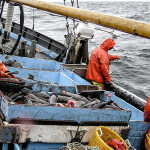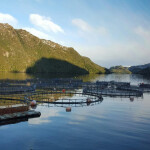Almost one in five fish farms in Scotland have failed to meet statutory environmental standards, the Scottish Environment Protection Agency (SEPA) has said.
The environment and human health regulator has published its annual assessment of whether environmental license conditions have been met. It found that Scotland’s aquaculture sector saw overall compliance levels drop during 2017 to 81.14 percent, against a relative peak of 85.75 percent in 2016.
SEPA said that non-compliant fish farms rose from 50 to 56 failing sites in 2017, due to a lack of monitoring or abstraction data being submitted on time by fish farm operators and an increase in farms failing due to effluent treatment issues.
The agency said that it is firmly committed to protecting and enhancing Scotland’s environment and will shortly announce a revised regulatory regime that will firmly strengthen the regulation of the sector and a comprehensive program of public engagement.
The new regime will include fresh modeling using the best available science, enhanced site based environmental monitoring, a new approach to sustainable siting of marine cage fish farms, and new approach for controlling the use of medicines aligned with encouraging innovation in the containment of marine waste.
Terry A’Hearn, chief executive for SEPA, said that environmental compliance is non-negotiable.
“Every Scottish business will comply with the law, and we’ll work to ensure as many as possible will go even further," he said. “We’re also clear that we will not tolerate consistent non-compliance. Our annual compliance report card enables us to systematically identify the compliance issues that need to be tackled in sectors like aquaculture and landfill. Local communities will rightly hold us to account if future years do not show an improvement."
In a statement, Julie Hesketh-Laird, chief executive of the Scottish Salmon Producers Organisation (SSPO), said that the Scottish salmon industry is committed to good environmental performance and that it works closely with SEPA to ensure it meets required standards, and addresses issues promptly where there is room for improvement.
“In 2017 there was a slight drop in the industry’s compliance rate though we understand from SEPA that the issues have not led to any environmental deterioration," Hesketh-Laird said. “Individual SSPO member companies will work quickly with SEPA to address issues where they arise."






